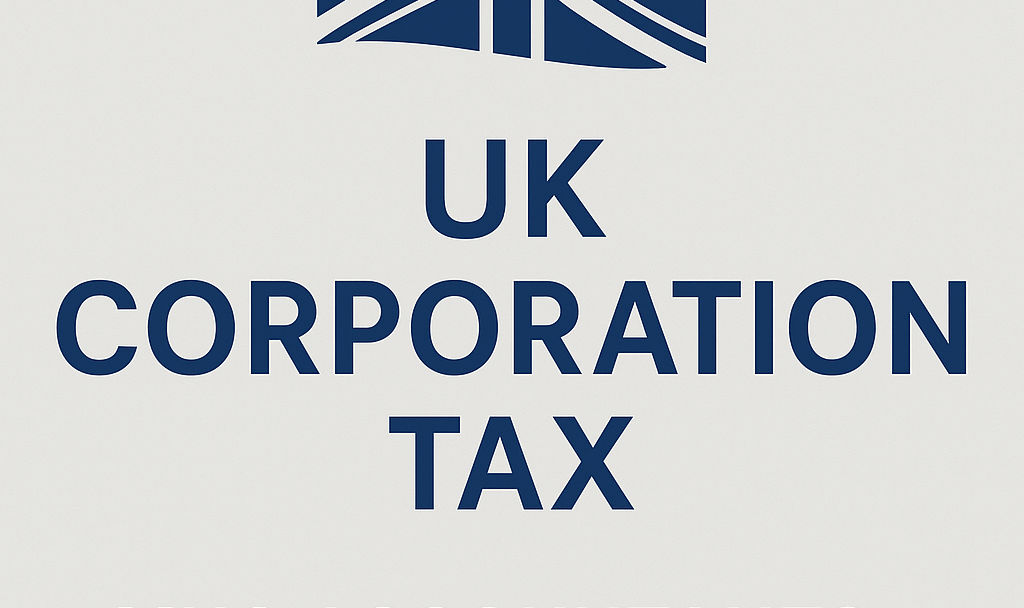UK Corporation Tax: A Complete Guide from MNG Accountants
MNG Accountants are committed to helping UK businesses stay compliant, minimise tax liability and maximise profits. In today’s post, we look in-depth at UK Corporation Tax, using up‑to‑date HMRC rules and accounting standards.
What is UK Corporation Tax?
Corporation Tax (CT) is a tax levied on the profits of UK-resident companies and on profits arising in the UK for non-resident companies. It covers trading profits, investment income (e.g. interest, rent, dividends) and chargeable gains. Understanding CT is essential for business growth and planning.
keywords: “UK corporation tax”, “what is corporation tax”, “UK CT advisory”
How is UK Corporation Tax calculated?
Corporation Tax is calculated as follows:
Compute taxable profits:
Accounting profits per UK GAAP or IFRS
Adjust for disallowable items (e.g. entertainments, fines)
Deduct capital allowances, reliefs, losses carried forward
Apply applicable CT rate
Deduct CT instalments paid (if applicable)
The result is the tax payable to HMRC.
Keywords: “calculate corporation tax”, “taxable profits UK”, “corporation tax calculation”
What are the Corporation Tax Rates?
For the 2024/25 tax year (accounting periods ending between 1 April 2024 and 31 March 2025):
Main rate: 25% for profits over £250,000
Small profits rate (SPR): 19% for profits at or below £50,000
Marginal Relief: applies for profits between £50k‑£250k, gradually increasing tax
From April 2025, changes are expected as per fiscal policy announcements. Speak to MNG Accountants to keep informed.
Keywords: “UK corporation tax rates 2025”, “small profits rate”, “marginal relief”
Does CT Apply to Sole Traders or Partnerships?
No – sole traders and partnerships are not subject to Corporation Tax. They pay Income Tax and National Insurance Contributions on their profits.
However, if a partnership is a Limited Liability Partnership (LLP) and treated as a company, CT may apply. Always clarify your business structure.
Keywords: “sole trader tax”, “partnership tax vs corporation tax”, “LLP corporation tax”
What is the Corporation Tax Year?
Corporation Tax does not follow the calendar year. The Corporation Tax accounting period aligns with your company’s financial year as set out in your Statutory Accounts.
For example, if your accounts run from 1 January to 31 December, that period is your Corporation Tax year.
Keywords: “corporation tax year”, “financial year alignment”, “UK company accounting period”
Which Form is Required to File CT Returns?
UK companies must submit Corporation Tax Return CT600, either CT600 (short) or CT600 (full), depending on complexity and group membership. CT600 is filed online via HMRC’s Corporation Tax Service.
Additionally, you'll submit:
Company tax computation
Full statutory accounts filed with Companies House
Disclosures for capital allowances, R&D claims, etc.
Keywords: “CT600 form”, “file CT600 online”, “corporation tax computation”
Due Dates for CT Returns and Payment
CT600 Return deadline: 12 months after end of accounting period
CT Payment deadline:
Within 9 months and 1 day after the end of that accounting period
Example:
Accounting year ends 31 March 2025 →
Return due 31 March 2026
Payment due 1 January 2026
MNG Accountants can set up payment plans, installment solutions, and reminder systems.
⚠️ What if You Miss the CT Return Deadline?
Failing to file or pay on time can result in:
Late filing penalties: starting from £100 and escalating over time
Late payment interest charged daily
Loss of access to tax reliefs, R&D credits, capital allowances
MNG Accountants offers a CT Deadline Management service, ensuring timely compliance and avoiding costly penalties.
Must CT Year Align with Company Accounting Year?
Yes – the Corporation Tax accounting period must match your statutory accounts. You cannot choose a different CT year. If your accounting period changes, you must inform HMRC and file split-year returns accordingly.
Keywords: “accounting period”, “tax year alignment”, “change accounting date HMRC”
What Expenses Can Reduce CT?
Common allowable expenses include:
Staff costs – wages, employers’ NIC, training
Office costs – rent, utilities, insurance, business rates
Travel & subsistence for business trips
Marketing and advertising
Legal and professional fees (e.g. accountancy, legal advice)
Depreciation via capital allowances:
Annual Investment Allowance (AIA)
First Year Allowances (FYA)
Interest on business loans (excluding capital repayment)
R&D costs – R&D tax credit-able investments
MNG Accountants conduct quarterly reviews, ensuring full claims without drawing HMRC attention.
Why Choose MNG Accountants?
Tailored CT strategies – mitigate tax liability
Comprehensive support – from CT600 to reliefs and instalments
Proactive deadline tracking – minimise late filing/pay penalties
HMRC-ready documentation – robust tax returns and computations
Growth advice – helping SMEs maximise allowances and reliefs
MNG Accountants “highly professional, knowledgeable, and proactive”. Why not get started today?
👉 Next Steps
Arrange a free initial consultation to assess your CT position
Share your latest statutory accounts – we’ll prepare CT computations
Let us file CT600, claim relevant reliefs, and manage payments
Receive ongoing support with R&D claims, capital allowances, and business growth planning
Final Thoughts
It’s critical for UK companies to understand Corporation Tax, manage costs properly, and maintain full compliance. At MNG Accountants, we combine technical expertise, strategic advice, and hands‑on support to help you navigate CT with confidence.
Contact us at accountants@mngaccountants.uk/ 447520643891 to ensure your business pays the right tax—on time, every time.
This content is intended as general guidance based on HMRC rules . For tailored advice, always consult directly with a qualified tax adviser.

